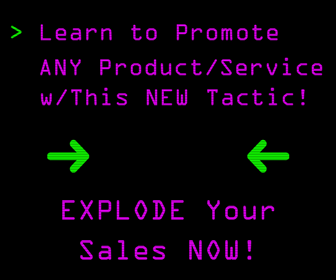 Every company has its ups and downs, and when the seasons change, a company’s fluctuations are inevitable. For a company to successfully navigate through the seasons, they must implement smart strategies that will help the company stay in profit. It’s impossible to prepare for every seasonal change, but there are ways to get prepared. Check out the tips below and don’t forget to join us during our free webinar training to continue to learn how to develop a profitable business all year long!
Every company has its ups and downs, and when the seasons change, a company’s fluctuations are inevitable. For a company to successfully navigate through the seasons, they must implement smart strategies that will help the company stay in profit. It’s impossible to prepare for every seasonal change, but there are ways to get prepared. Check out the tips below and don’t forget to join us during our free webinar training to continue to learn how to develop a profitable business all year long!
Salesforce does an excellent job of explaining why you should prepare yourself for your business to cycle. Not only that, but you should also plan financially for off-season changes. Deciding on what the best course of action is should be based on what patterns you see so far.
Anticipate the business cycle.
Although this might sound like an oversimplification, it takes some discipline to know that the cash flow boon happening during peak season will ebb into a trickle when the season is over. Nevertheless, it’s important to plan ahead and prepare for those times when business is going to be slower. Having spent many years in a seasonal business, I recognized the importance of setting aside some profits to pay for expenses during the lull before the next busy season. I also came to appreciate that when it was time to “make hay,” I needed to be ready for the extra work—which often meant longer hours and a lot more to do.
As seasonal businesses grow, some of the part-time employees that get hired to help through the busy season become full-time employees, and their part-time roles are taken by new seasonal employees hired to fill in the gaps. The business owners that are the best at anticipating and planning for the busy seasons (and the gaps in between) are those who build strong and thriving businesses.
Manage for, and minimize, off-season expenses.
During the busy season, it’s easy to rationalize spending a little extra capital, but it’s important to budget for your off-season expenses if you anticipate investing in your business during the peak times. This takes discipline and patience, but it’s well worth it as revenues drop when the season is over.
Budgeting includes more than your capital resources, too. Many seasonal businesses reduce their hours during the gap between seasons, and some close their doors altogether. Reducing staff is another important part of minimizing off-season expenses and should be addressed whenever new employees are hired so they understand if there is a defined season of employment.
You may also be able to work out favorable terms with your suppliers that will accommodate those times when business is slower and monthly revenue is lower. At the very least, taking what’s called a “Just-In-Time” approach to managing your inventory during the peak season will help you keep your inventories low as you rely on your suppliers to have quick-access inventory ready to ship to you as you need it. This might require you to take tighter control of how you manage inventory, but you’ll be able to avoid ending the busy season with too much inventory on your shelves.
According to Entrepreneur, the author argues how vital it is to understand industry changes and also plan for those changes. Be one step ahead of your competitors by carefully watching for industry trends to change. You can adapt to these changes and use them to your advantage, that way they won’t catch you off guard. Entrepreneur also offers a few other tips below:
Understand the cycles in your industry.
Rapid growth of a company is not unusual for business owner who's new to an industry. And that can disguise a normal seasonal fluctuation, leading the entrepreneur to expect the healthy sales will continue.
Base projections about seasonality on sales data from at least two or three years. If the business hasn't been around that long, check with peers and industry sources.
Fortify planning skills.
“Measure twice, cut once” is an old adage that still rings true, especially for a new business.
Look ahead at least six months to plan appropriately. To carry the business through slower periods (the shoulder season) and complete lulls (the off-season), considersocking away cash reserves during the busy months.
Look hard at every element, from inventory to staffing, to avoid tying up cash unnecessarily during quiet months. And don’t forget to take advantage of slow stretches to prepare for the peak season.
Be creative about staying in touch.
Set apart a business by making a point of maintaining visibility throughout the year
Even if regular clients aren't much in contact during the off-season, they might still be around. Be creative about finding ways to stay in touch with them all year round. It’s a great way to turn one-time customers into repeat clients.
Similar to Salesforce’s advice, Business News Daily also explains why managing offseason expenses are critical.
Understand and manage offseason expenses.
As a business owner, you always need to understand and manage your cash flow and expenses, but this is especially important for seasonal businesses. Once you understand your offseason expenses, look for ways to minimize them.
“Every dollar that leaves your bank account is money that can help you better weather the offseason,” said Russ Jundt, founder of Conserva Irrigation. “Dedicate yourself to minimizing necessary expenses and eliminating unnecessary costs.”
You should also look for ways to expand your sales into slow periods. Gary Fouts, owner of Christmas Decor, offers monthly payments plans to help with offseason expenses. “Offering monthly payment plans can be a great way to help a client afford your services while also helping your business have a consistent source of cash throughout the year,” he said.
He promotes seasonal services and incentivizes people to sign up during the offseason.
“This biggest thing to help with this though is to have a budget and stick to it throughout the entire year,” Fouts said.
Use the offseason to strategize and plan.
Just because it's your offseason, that doesn't mean you can't accomplish tasks and improve your business. Businesses should use this slow period to strategize, plan and train employees.
“The offseason is a great chance to study what worked successfully and what did not,” said Jundt. “We call this our Start, Stop or Continue exercise. What should we start doing differently as a result of last season's performance? What should we stop doing, and what should we continue doing?”
Brandon Stephens, president of Christmas Decor, also uses the offseason to think about the business's needs and set goals and profit targets for the next season.
“This might include calculating ideal number of clients to retain, adjusting the training process, ordering new equipment, conducting pricing evaluations, updating marketing materials, etc.,” he added.
As you’ve probably realized by now, a common theme in this article is planning. The truth is you can’t be sure of seasonal changes, but you can do your best to stay one step ahead of it. That’s why American Express reminds us how important it is to take everything into accord, from staff to advertising to focusing on what will make your company succeed.
Staffing. Advertising. Strategic thinking. You see each of those actions in real-world business scenarios above.
But what do these business owners say is the best advice on managing seasonality they have to offer?
Franco Francese: “Deal with the adversity of seasonality head on and don't shy away from making changes to handle issues. Don't be afraid to try new ideas. And, if something isn't working, switch gears and move into a new direction.”
Julia Rohan: “Financial forecasting is everything for a seasonal business. Start with base year, then develop a list of assumptions based on past and present experience and analyze trends. From there, develop a model of your business structure and build out possible business scenarios. It's an endless cycle.”
Garrett Ball: “Have an established plan well in advance. You cannot just simply ride the roller coaster. You have to plan for it.”
If you’re ready to increase your business’ profit, then join us during our free webinar training. Tap into your site’s potential, and you’ll thrive in an online world!
Sources: Entrepreneur, Salesforce, Business News Daily, American Express
CHALLENGE Yourself to Profit!
Free Download: Build Your Profit-Generating Online Business With This Free Blueprint
Sign Up, follow the easy steps and You'll get the tactics, strategies & techniques needed to create your online profit stream. It's free!



